Code of Conduct
How to Be
UNT is dedicated to providing collaborative and conference experiences that are free from all forms of harassment, and inclusive of all people. Small actions you can take will help us meet this goal. For instance, we suggest: listening as much as you speak and remembering that colleagues may have expertise you are unaware of; encouraging and yielding the floor to those whose viewpoints may be under-represented in a group; using welcoming language, for instance by honoring pronoun preferences and favoring gender-neutral collective nouns (“people,” not “guys”); accepting critique graciously and offering it constructively; giving credit where it is due; seeking concrete ways to make physical spaces and online resources more universally accessible; and staying alert, as Active Bystanders, to the welfare of those around you.
Likewise, it is important to understand the range of behaviors that may constitute harassment. Harassment can include unwelcome or offensive verbal comments or nonverbal expressions related to: age; appearance or body size; employment or military status; ethnicity; gender identity or expression; individual lifestyles; marital status; national origin; physical or cognitive ability; political affiliation; sexual orientation; race; or religion. Harassment can also include use of sexual and/or discriminatory images in public spaces (including online); deliberate intimidation; stalking; following; harassing photography or recording; sustained disruption of talks or other events; bullying behavior; inappropriate physical contact; and unwelcome sexual attention.
Sexual, discriminatory, or potentially triggering language and imagery is generally inappropriate for any UNT Open Access System. However, this policy is not intended to constrain responsible scholarly or professional discourse and debate. We welcome engagement with difficult topics, done with respect and care.
What to Do
That said, we will not tolerate harassment of participant in a UNT Open Access Symposium in any form. If you are being harassed, notice that someone else is being harassed, or have any other concerns, please contact a member of the UNT staff or a designated community volunteer immediately. They will assist participants by contacting hotel/venue security or local law enforcement, providing escorts, or otherwise helping those experiencing harassment to feel safe for the duration of the event.
To report incidents after our events, in online venues, or on-site but in the absence of a staff member, please contact the UNT Libraries Scholarly Communication Office at scholarlycommunication@unt.edu or write to the Assistant Dean for Scholarly Communication privately. However, if you or others are in imminent danger, please first phone emergency services at 911. During the UNT Open Access Symposium, in addition to reporting incidents in person, please consult any additional resources and links provided by local organizers and hosts.
All reports and inquiries will be handled in confidence.
Participants at the UNT Open Access Symposium who are asked to stop harassing or intimidating behaviors are expected to comply immediately. Those who violate our code of conduct may be warned, sanctioned, or expelled at the discretion of the organizers.
We value your presence and constructive participation in our shared community, and thank you for your attention to the comfort, safety, and well-being of fellow participants in the UNT Open Access Symposium.
This code of conduct is a derivative of the DLF Code of Conduct, used under CC BY-NC 4.0.
